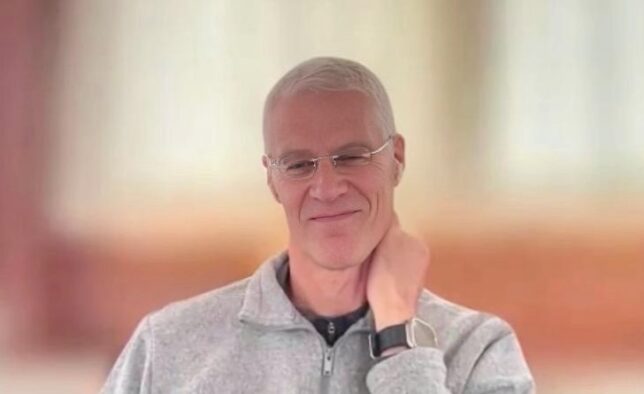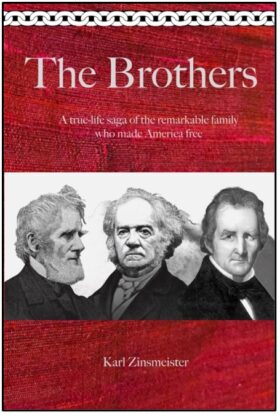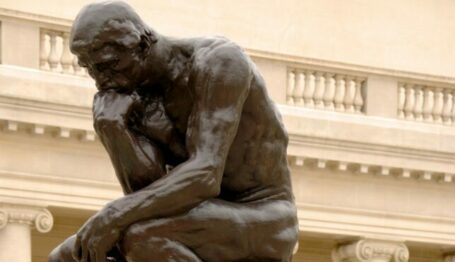Philanthropy
A Conversation With The Brothers Author Karl Zinsmeister (Part 2 of 2)
The former White House official and Philanthropy Roundtable vice president talks to Michael E. Hartmann and Daniel P. Schmidt about the Tappan brothers’ belief in the primary role of individual human beings to do what’s right and get things done, as well as how today’s alternative faith in the promise of technology is a serious challenge for any return to that primacy of people.
 Karl Zinsmeister
Karl Zinsmeister

Karl Zinsmeister‘s length and variation of professional experience, along with his depth and breadth of knowledge, give rise to a wisdom from which more should benefit. Luckily, he shares it with humility and, relatedly, good humor.
Among other things, Zinsmeister directed the White House Domestic Policy Council during the administration of President George W. Bush, and was an aide to U.S. Sen. Daniel Patrick Moynihan. He has also been a vice president of the Philanthropy Roundtable and occupied the J. B. Fuqua Chair at the American Enterprise Institute (AEI), for which he edited The American Enterprise magazine.
Zinsmeister created The Almanac of American Philanthropy—the authoritative, 1,342-page reference document on private giving in America—and has produced hundreds of other books, publications, podcasts, and films.
His compelling new historical novel The Brothers tells the underappreciated history of Arthur, Lewis, and Benjamin Tappan—fascinating, real-life siblings who transformed the abolition of slavery from a fringe campaign into a mass popular movement in America, including through their philanthropy, which also changed other things in the U.S. very much for the better.
Zinsmeister was kind enough to join us for a conversation late last month to discuss The Brothers. In the first part of our discussion, which is here, he talks about why the Tappans aren’t featured prominently in history books, the love they had for each other even though they had serious disagreements, and the beliefs on which their philanthropy was based.
The just more than 15-minute video below is the second part, during which he discusses the Tappans’ belief in the primary role of individual human beings to do what’s right and get things done, as well as how today’s alternative faith in the promise of technology is a serious challenge for any return to that primacy of people.
In The Brothers, during a conversation that Lewis was having about his brother Arthur, Lewis describes a metaphor about beehives that Arthur often used. It’s “relevant to our modern philanthropy” because “everyone says, you’ve got to scale, you’ve got to get big, you’ve got to have metrics and scale up,” Zinsmeister tells us. “It just gives me the willies. I mean, the great philanthropy of all time, it was the opposite. It was, small is beautiful. You start at the very lower level, with individual human beings. You understand them as individuals, not as part of a big blob.”
A bee produces about one-twelfth of a teaspoon of honey in her lifetime, and the honey gathered annually in a typical hive requires more than one million foraging trips by the colony’s bees. “If you think about that, you say, oh my gosh, that’s a crazy amount of work. I can’t ever produce a pound of honey that way. I’m going to just give up,” Zinsmeister notes.
But that’s defeatist thinking. The Tappans recognize that every bee, starting with me and including my neighbor and including the next ring out and the next ring out, if everyone does their little bit, by the end of the day, you’ve got this hive full of honey. That was the metaphor. That was not only poetic and lovely, but really very realistic. That’s another way a lot of their great work got done—not by big foundations, not by big corporations, not by big government, by big anything, but by lots and lots of small individuals doing their part.
Zinsmeister concludes with an observation humorously self-acknowledged as pessimistic, but serious. “Let’s acknowledge how far we are from the wisdom of the Tappans,” he says.
Instead of that moral impulse, that one-on-one impulse, that personal-suasion impulse, that working with the inner soul, that made the Tappans so successful, we’re in the opposite place right now. A lot of this, let’s be frank, is because the biggest fortunes of our era are coming out of technology, right? These techies think, oh, that’s the solution.
Technology. “That must also be the solution to addiction. That must also be the solution to family breakdown. They’re prescribing technology, and engineering, and reprogramming human beings—and it just is never going to work. We are so far from the human elements that really matter.”
This article first appeared in the Giving Review on March 12, 2024.



